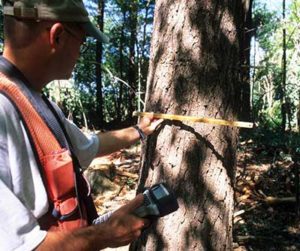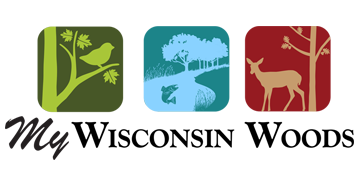What Foresters Do
What do foresters do?
In general, foresters help woodland owners with proper woodland care by offering education and technical assistance on topics such as wildlife habitat management, woodland tax basics, invasive species control, tree health, timber inventories, government assistance programs, management plans, and many others.

But it’s also important to understand that there are two types of foresters: public and private.
Public foresters
Public foresters work for county, state (e.g., Wisconsin Department of Natural Resources), and federal (e.g., Natural Resources Conservation Service, NRCS) government. Their positions, which are tax supported, reflect the public’s interest in the role private lands play in healthy water, air, and soil, and productive natural resources.
Public foresters are very familiar with government incentive and financial assistance programs for sustainable forestry and land care. As workload permits, they can provide up to 24 hours, or three working days, of service to a landowner per year. Their services include:
- Woodland walk-throughs with you to “read the land”
- Help with understanding government incentive and financial assistance programs (e.g., Managed Forest Law), as well as technical and administrative assistance
- Brief, written plans that address sustainable forestry goals, including timber production; protection and enhancement of grasslands, wetlands, wildlife, and endangered resources; recreational enjoyment; prevention of soil erosion; and other concerns
- Advice on timber harvesting
- Information about forest protection, such as preventing damage from fire, insects, and disease
- Tree and shrub planting plans, nursery stock shipments, and planting equipment
- Forestry education through conferences, school programs, public speaking, and news releases
Private foresters
Private foresters are either employed by a company (industrial foresters) or independent (private consulting foresters). Companies hire industrial foresters to procure wood, and by necessity, balance the needs of the company’s mill with those of the landowner.

A private consulting forester, on the other hand, works solely on behalf of the landowner. He or she is paid for the service(s) rendered, and/or through a percentage of a commercial harvest.
These foresters provide:
- Forest inventory (i.e., a timber cruise)
- Forest, wildlife, and recreation management plans; mapping
- Acquisition and sale of forest lands; appraisals of land, timber, damage, trespass
- Timber sales: planning of roads, boundary delineation, soliciting of bids, contract preparation, log scaling, and grading
- Woodland and timber tax counseling
- Tree planting and site preparation
- Timber stand improvement: thinning, pruning, invasive species control
- Cost basis determinations
- Litigation and expert testimony
Some private foresters also engage in activities outside traditional woodland management, including pest control, urban forestry, pruning, arboriculture, shade tree appraisals, and Christmas tree production.
What type of forester do I need?
If you are a new landowner or new to forestry, a public forester is a good place to start. Just understanding all the management possibilities and issues can be overwhelming, let alone knowing how to get going.
Moreover, public programs exist that provide significant tax reductions and financial assistance for sustainable forestry and land care practices. At the very least, you should be aware of these government programs, as they can save you many thousands of dollars.
As you gain experience and interest in the economic aspects of sustainable forestry, you’re probably better served by engaging a private forester. By assisting you with things like identifying profitable timber sales, bidding, and contracting, they put money in your pocketbook and help preserve the long-term health and productivity of your woods.
